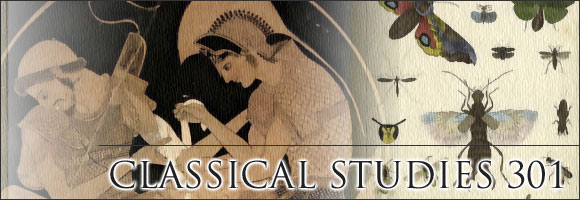
Course Description
Classical Studies 301 provides an introduction to the Greek and Latin elements which are employed in medical and biological terminology. Approximately 94% of the technical “language” of medicine and biology comes from these two ancient languages; a familiarity with the basic vocabulary as well as an understanding of the linguistic principles which govern the creation of medical and biological terms are invaluable resources for students in these fields. Students will learn both how to deconstruct medical and biological terminology into lay terms and how to construct lay terms into accepted scientific terminology. The course also looks beyond the core vocabulary and provides relevant material from ancient literary, mythological, historical, and medical sources, all of which serve to furnish a cultural context for the linguistic elements under discussion.
Student Description
The course is designed primarily for science students, particularly those in the biological or pre-medical fields, but students from other areas of study are also most welcome to enroll. No knowledge of the Greek or Latin languages is required; no knowledge of anatomy or physiology is required.
Students who are Majors, Minors and Honours in Classical Studies, Classics, Myth and Literature in Greece, Rome and the Near East, and Archaeology and History of Greece, Rome and the Near East are welcome to enroll, but they may not count CLST 301 for credit in these programs.
Course Materials
All course materials will be provided on-line.
Course Requirements
You must successfully complete a variety of assignments: there is a weekly vocabulary quiz, as well as a short weekly assignment, most involving practice in creating and defining terms; you will be asked to participate in two on-line discussions based on short assigned readings; and you must take a final examination. The final examination is a written one and is not taken on-line.
